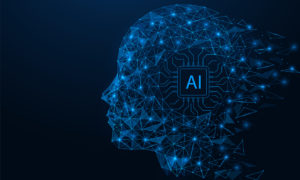Inventions Created by AI Cannot Be Patented, Says Federal Appeals Court
A computer scientist has lost his bid to secure patents for inventions created by his artificial intelligence (AI) system. On August 5, 2022, the Federal Circuit Court of Appeals, in its opinion in Thaler v. Vidal, flatly concluded that the Patent Act does not allow for non-human inventors.
Plaintiff Steven Thaler has developed a number of AI systems to autonomously generate inventions. One such system, which he called DABUS (Device for the Autonomous Bootstrapping of Unified Science), outputted two inventions he looked to patent: a light beacon and a beverage container. In July 2019, Thaler applied for patents on them, but the U.S. Patent and Trademark Office (USPTO) denied both, because he listed the inventor as the artificial intelligence.
Thaler challenged the denial of his applications in federal court, but in September 2021, the Eastern District of Virginia agreed with the USPTO, holding that the Patent Act requires an inventor to be an “individual,” which means they must be a human being.
On appeal, the Federal Circuit adopted the same position.[1] The court highlighted the fact that the statutory text of the Patent Act uses personal pronouns (i.e., himself and herself), suggesting that Congress did not intend to include non-human inventors within its ambit.[2] The court also cited Supreme Court precedent instructing that statutes referring to ‘individuals’ be interpreted to cover only natural persons unless there is some indication to the contrary. Moreover, the court pointed to the requirement that inventors submit an oath or declaration that “such individual believes himself or herself to be the original inventor or an original joint inventor of a claimed invention in the application.” Without addressing the much more philosophical and abstract question of whether an AI can form beliefs, the court simply noted that it was Thaler who submitted the declarations on DABUS’s behalf.[3]
Thaler and his supporters had argued that this undermines the purpose of the Patent Act, which is to, of course, incentivize innovation by providing a temporary monopoly. If the law makes AI-generated inventions unpatentable, then people will be discouraged from either making the AI in the first place or will instead hoard the resultant inventions as trade secrets, keeping them from public disclosure and thus lessening the store of knowledge and progress of science and technology, which runs directly against the policy goals of the patent regime.
Granting patent protection to AI’s inventions has been a personal crusade for Thaler, who has sought judicial recognition for DABUS’s in more than a dozen countries around the world. However, the Federal Circuit is not alone in handing him defeat. The U.K.’s Intellectual Property Office completely rejected the contention that AI could be an inventor. An Australian appellate court did the same in April.
Thaler has seen some success, however. Just last month, the European Patent Office decided that AI cannot be named as the inventor on a patent, but at the same time did leave the door open to the possibility that the AI’s user or owner could be named instead. So far, the only country to grant Thaler’s applications has been South Africa, which issued patents on the two DABUS inventions in July of last year. The Federal Circuit was unmoved by that determination.[4]
Like so many issues around the intersection of emerging technology and intellectual property, it is safe to say that the state of the law is in flux on this particular question, both in the U.S. and around the globe. In this case, Thaler has already vowed to appeal to the Supreme Court. Many are also calling on Congress to reform and modernize the Patent Act. We will be tracking these developments closely to see how they affect IP protection eligibility.
SLG has a wealth of experience advising clients on intellectual property matters, especially in the high-tech area. For more information on how SLG can assist your business and deal with these evolving and potentially thorny issues, please contact SLG at info@shelgroup.com.
[1] Thaler v. Vidal, No. 2021-2347, 2022 U.S. App. LEXIS 21712 (Fed. Cir. Aug. 5, 2022)
[2] Id. at *7–8
[3] Id. at *7.
[4] Id. at *11.

